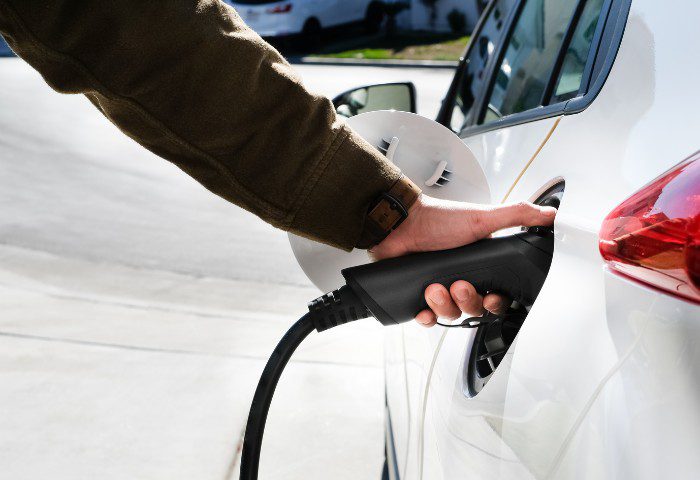Investing in an electric vehicle means embracing the future of transportation. Whether you’re relocating, selling your car to another eco-conscious driver, or simply moving your EV to a new destination, there are several compelling reasons to consider professional electric vehicle transport services. For one, shipping your vehicle instead of driving it yourself significantly reduces wear and tear. Long drives can add unnecessary mileage and strain on your vehicle.
However, electric vehicles are sophisticated pieces of technology with sensitive components that need special care. How is electric vehicle transport different from shipping a regular gasoline-powered car?

Table of Contents
What Are The Challenges Of Transporting An Electric Vehicle?
Transporting an electric vehicle (EV) comes with its own set of unique challenges that set it apart from traditional internal combustion engine vehicles.
- Battery Safety: EVs are powered by large lithium-ion batteries, which require careful handling. These batteries are sensitive to temperature fluctuations, physical damage, and improper charging or discharging. Special precautions are essential to prevent incidents during transport.
- Fire Hazards: One of the most significant risks associated with transporting EVs is the potential for fire. A short circuit or damage to the battery can lead to dangerous situations. To mitigate this risk, electric vehicles must be handled with extra care, often requiring the use of fire-resistant containers and strict adherence to safety protocols.
- Weight Distribution: Electric vehicles are typically heavier than their gasoline counterparts, primarily due to the substantial weight of the battery. This added weight impacts both the shipping cost and the logistics of loading the vehicle onto a carrier. Transport companies must account for this increased weight, ensuring that the carrier is capable of safely transporting the load without compromising stability or safety.
- Charging Requirements: Unlike gasoline vehicles, EVs need to maintain their battery levels during long-distance transport. This involves planning routes to include charging stations and ensuring the EV has sufficient charge before and after transport, which can be a logistical challenge.
How Can You Prepare Your Electric Car For Transport?
When it comes to transporting your electric car, preparation is key to ensuring a smooth and hassle-free experience.
- Charge the Battery: Make sure your electric car’s battery is adequately charged before transport. While it doesn’t need to be fully charged, having around a 50% charge can help facilitate loading and unloading.
- Check the Tire Pressure: Proper tire inflation is crucial for the safe transport of your electric vehicle. Ensuring the tires are inflated to the manufacturer’s recommended pressure will help prevent any damage during transit.
- Disable the Alarm System: To avoid any unnecessary disturbances during transport, deactivate your car’s alarm system. This prevents the alarm from going off due to movement or vibrations during the journey.
- Secure Loose Items: Remove or secure any loose items inside the car to prevent them from moving around and causing damage. This includes personal belongings, charging cables, and any aftermarket accessories.
- Document the Car’s Condition: Take detailed photos of your electric car from various angles, capturing its current condition. This documentation will be useful for insurance purposes in case of any damage during transport.
- Consult the Owner’s Manual: Refer to your car’s owner manual for any specific instructions or recommendations from the manufacturer regarding transport. Some electric cars may have special modes or settings for safe transport.
- Select a Reputable Transport Company: Choose a transport company with experience in handling electric vehicles. Verify their credentials, read reviews, and ensure they have the necessary equipment and expertise to transport your car safely.
Electric Vehicle Transport Costs
When considering the costs associated with transporting your electric vehicle (EV), several factors come into play:
- Make and Model: Different EVs have varying transportation costs depending on their make and model. High-end or rare models may require specialized handling or enclosed carriers, leading to increased transport fees.
- Dimensions: The size of your vehicle matters. Larger EVs occupy more space and may necessitate special equipment or larger transport vehicles, contributing to higher costs.
- Weight: Heavier vehicles may incur additional charges due to the increased fuel consumption and potential need for stronger transport mechanisms.
- Condition of Your Car: If your EV is in good working condition, it might be easier and cheaper to transport. Non-operational vehicles often require extra equipment and labor, driving up the cost.
- Season: The time of year can impact transportation costs. For example, winter months might see higher rates due to challenging weather conditions.
- Demand: Peak seasons or high demand periods can lead to higher prices. Planning your vehicle transport during off-peak times might save you money.
- Distance: Naturally, the further your EV needs to be transported, the more it will cost. Long-distance hauls involve more fuel, time, and potentially more logistical arrangements.
- Transport Method: The choice between open and enclosed transport can affect the cost. Enclosed transport offers more protection but at a premium price.
- Additional Services: If you opt for expedited shipping or door-to-door service, expect to pay extra. These conveniences can significantly increase the overall cost.
Final Thoughts
Ultimately, electric vehicle transport is not very different from shipping any other car. While there are unique considerations, a professional transport company will ensure all challenges are addressed and provide you with detailed instructions throughout the process. If you need to ship an electric vehicle, don’t hesitate to contact Beeline Auto Transport for further information.


